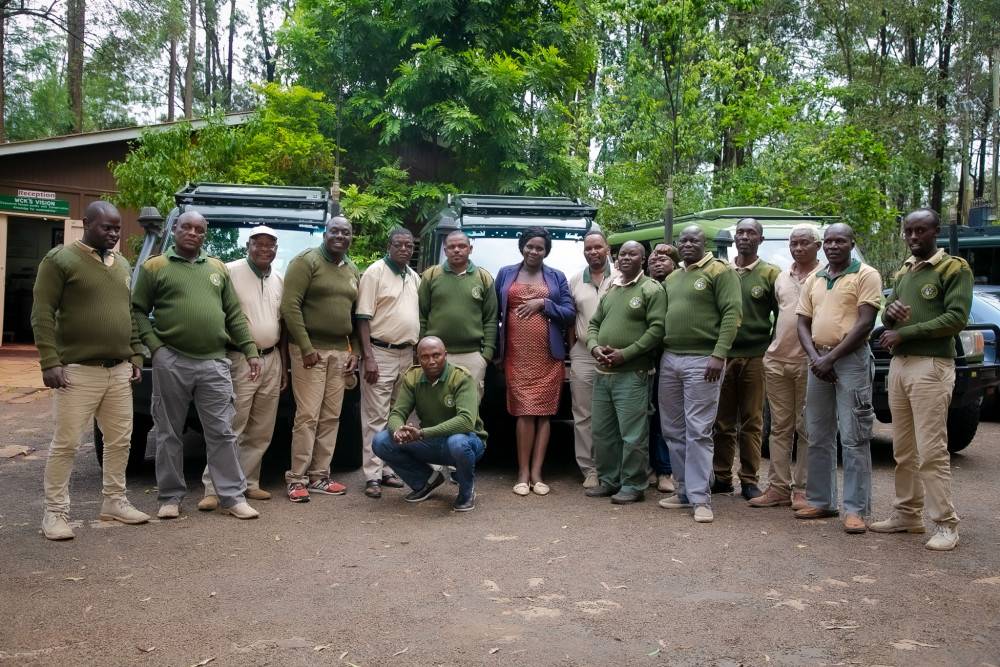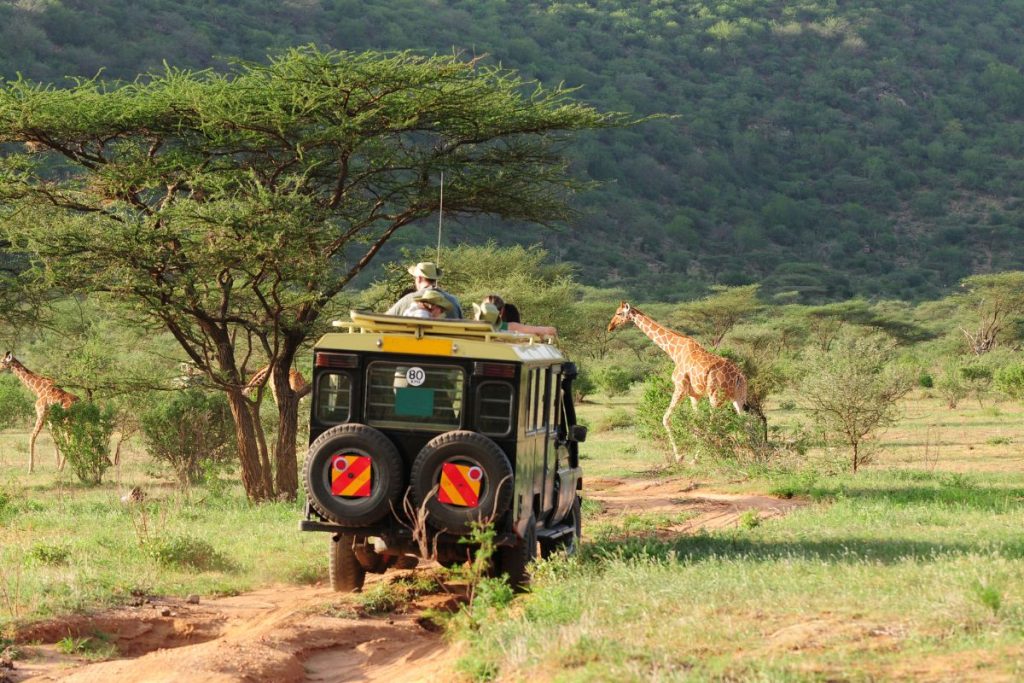Free News On Deciding On Kenya Day Tours
Wiki Article
What Are The Health Precautions I Must Take Before Traveling To Mombasa, Kenya For A Holiday?
While you're in Mombasa (Kenya) it's crucial to be aware the health hazards. Here are a few of the major health issues:
1. Vaccinations
Routine Vaccinations: Ensure that you are up-to-date on routine vaccines such as measles-mumps-rubella (MMR), diphtheria-tetanus-pertussis, varicella (chickenpox), polio, and your yearly flu shot.
Hepatitis A is advised for all travelers because of the possibility that food and water may be affected.
Hepatitis B It is advised to travelers who may be exposed to bodily fluids or blood (e.g., through sexual contact, medical treatment, or use of drugs).
Typhoid vaccination is recommended to anyone traveling, but especially for those traveling to rural or small regions, staying with family, or eating in unfamiliar places.
Yellow Fever: Travelers arriving from countries with a possibility of transmission of yellow fever may need to show a vaccination certificate. Check the most recent requirements.
Consider rabies for travelers participating in outdoor activities like hiking, camping, or caving.
2. Malaria Prevention
The malaria in Mombasa is very prevalent. Consult with your healthcare provider about the antimalarial medications that are right for you.
Dress in long sleeves and a pair of pants at night and in the evening. Use insect repellents that contain DEET. You should sleep under a mosquito net when you're not in a climate-controlled room or one that has good screens.
3. Food and Water Safety
Drinking tap water is not recommended as are ice cubes. Avoid drinking tap water, ice and drinks that aren't sealed.
Consume only safe and cooked and well-cooked food. Avoid eating raw meat, seafood as well as unwashed fruits and vegetables. Be careful eating street food. Choose reliable restaurants instead.
4. Diarrhoea as a result of travel
Hand Sanitizer, or washing your hands using soap and hot water is a good method to maintain a clean and healthy hand. Beware of food and beverages from unreliable sources.
Medication: Carry medications like the loperamide (Imodium) as well as oral rehydration salts. It is recommended to consult with your doctor to determine the need for antibiotics in serious instances.
5. Sun Protection
Sunscreen: Apply sunscreen that has an SPF of at least 30. Apply sunscreen regularly, particularly if you've been in the water or sweated.
Protective Clothing: Use hats with sunglasses and wear long sleeves, light clothes so that you are not exposed to sunlight.
6. Heating and Hydration
Stay Hydrated. Drink plenty, and preferably water to avoid dehydration. Dehydration is often caused by excessive alcohol and caffeine.
Avoid overexertion. Take a break and take a rest during times during the time when the sun is highest. Avoid heat stroke or heat exhaustion by seeking shade and cool spots.
7. Safety in Water Activities
Swimming in designated Areas Pay attention to local guidelines regarding the conditions of swimming and possible hazards, such as strong currents.
Beware of marine creatures that pose danger such as sea urchins, jellyfish. If you are walking through shallow waters take water shoes.
8. Medical Care and Insurance
Travel Insurance: Ensure you have comprehensive travel insurance that covers medical emergencies including evacuation.
Local Medical Facilities: Acquaint yourself with the exact location of medical facilities that are reputable located in Mombasa. Major hotels usually have information on nearby hospitals and doctors.
You will need to bring your medication along with prescriptions in the form of copies.
9. Emergency Contacts
Embassy Information: You should have the contact details for the consulate or embassy of your country in Kenya.
Local Emergency Numbers: Be aware of the local emergency numbers including Police (999) (999), Fire (999) as well as Ambulance (999).
Enjoy your time in Mombasa and reduce the risk by taking these easy health precautions. Check out the recommended kenya watamu marine national park for website examples including tour company in kenya, safari mombasa kenya, tour and travels, trips to kenya, kenya safari packages, tours and safaris, kenya africa travel, safar kenya, africa tours, tour and travel company and more.

What Cultural Sensitivity Considerations Must I Know When I Am Traveling To Mombasa, Kenya?
It is important that you respect local culture when traveling to Mombasa. This will allow you to enjoy your trip more. Here are some considerations to consider:
1. Respect Local Dress Codes
Mombasa's Muslim people are large. In public areas, religious locations, and neighborhood, it is important to dress modestly. This includes covering the chest, shoulders and even the knees.
Beachwear: While swimming attire is allowed on the beach, it is best to wear a cover-up if you are leaving the beach area or heading to restaurants or shops nearby.
2. Religious Sensitivity
Going to Mosques: If you would like to visit a mosque, make sure you have permission first. Dress appropriately. Women must cover their heads, and everyone must remove their shoes prior to getting into.
Prayer Times: Always be mindful of the five times to perform prayer every day and show respect particularly if you're in the vicinity of the mosque of a Muslim.
3. Photography Etiquette
Permission is always needed prior to taking pictures, especially in rural and traditional environments. Certain people are uncomfortable, or may think that the photographs are too intrusive.
Zones that are restricted: Do not take photos in sensitive areas including government buildings, military installations, or cultural sites, where photography is forbidden.
4. Social Interactions
greetings: greeting people courteously is crucial. Swahili is a language that has a greeting known as "Jambo" or "Hello". Handshakes are not a must, however, Muslim women should wait for the males to extend their hands before greeting them verbally or waiting for them to greet them.
Respect your personal space. Be careful of physical contact.
5. Cultural Norms Taboos
Limit Public Displays Affection. They are usually looked at.
Left Hand Usage: Traditionally, the left hand is regarded as unclean. Use your right hand for eating, greeting, and exchange of goods or money.
Foot: It's rude to show the soles or point your feet towards individuals.
6. Language and Communication
Basic Swahili. Understanding a few Swahili phrases and words can help you establish rapport with the locals. Common phrases include "Asante" (Thank for your time) as well as "Habari" (How do you feel? ).
Politeness: Always be polite and patient when communicating. Kenyans respect and value respectful interactions.
7. Respect local customs
Traditional practices: Be respectful of traditional ceremonies and practices. If you are invited to attend a local celebration be attentive and follow the instructions of your hosts.
Bargaining can be commonplace at markets as well as in local shops. Be sure to conduct it respectfully and with a sense of humor. It's more cultural than confrontational.
8. Alcohol and Smoking
Alcohol is available in most regions, but it is not recommended to drink it in public. Beware of drunkenness in public.
Smoking in public places is not allowed. Be sure to look for areas designated for smoking.
9. Environmental Respect
It is a crime to litter. Take care of nature and wildlife.
Conservation: Contribute to conservation efforts by preserving local wildlife and habitats. Beware of buying products from endangered animals.
10. Assisting Local Communities
Local Businesses - Support local businesses and markets.
Responsible Tourism: Participate in responsible tourism by selecting eco-friendly and community-based tourism alternatives that benefit local communities.
You can enhance your appreciation of local culture by following these guidelines to be sensitive to culture. See the best kenya watamu marine national park for site tips including kenya travel packages, kenya tours, tour firms in kenya, tours and safaris in kenya, safari excursions, safari excursions, kenya safari tours, kenya beach and safari holiday, safari tour, safari excursions and more.

What Financial Planning Considerations Should I Be Aware Of When Planning My Next Holiday In Mombasa?
Planning your finances carefully will result in a more enjoyable and relaxing trip in Mombasa. Here are a few important financial tips to remember:
1. Budgeting
Accommodation: Reserve your lodging at least a month in advance. The cost of lodging varies based on location and type.
Transportation: Include costs for flights, local transportation (taxis, tuk-tuks, matatus rental cars) and any possible excursions.
Budget for all meals, not including meals and dining out. Prices vary from cheap local eateries to high end restaurants.
Create tours and activities. This includes entrance charges for the attractions as well as guided tours as well as activities like safaris and water sports, cultural tours and more.
2. Currency and Exchange rates
The Kenyan Shilling is the currency of Kenya. Know the rates of exchange.
Currency Exchange Exchange money at trustworthy banks and bureaus for currency. You can also exchange money through your hotel. Don't exchange currency in the street.
ATMs can be found in Mombasa. Verify that your credit card is compatible with international withdrawals.
3. Payment Methods
Cash: Keep a small amount of cash on you for small purchases, tipping and other places that do not accept credit cards.
Credit Cards and Debit cards: All major credit and debit cards can be accepted by restaurants, hotels and stores of a larger size. Inform your bank of any plans for travel in order to avoid having your credit card blocked.
M-Pesa Mobile payments is widely utilized by Kenyans. It's useful for transactions if you're planning to use an local SIM card.
4. Make money using these simple tips
Travel off-season. When you travel in the off-season or shoulder (April to October, and November through April) you will save cash on hotels, flights and other travel costs.
Make sure to book early for the best deals on flights and accommodation.
Local Eateries: Eat at local eateries and food stalls for a more authentic and budget-friendly experience.
5. Tipping
Tipping has now become an African tradition. In restaurants, a 10% tip is standard when service is not included. You can tip hotel staff guide, drivers and other staff at your discretion.
Tips: Small amounts in local currency are highly appreciated. You can tip housekeepers KES100 or porters KES50 to 100 per bag.
6. Emergency Funds
Reserve Funds: Have an emergency fund of cash and make sure you have access to extra cash via a debit or credit card in the event unexpected expenses arise.
Travel Insurance: Invest in an insurance policy that is comprehensive and will cover medical emergencies, trip cancellations, and theft or loss of possessions.
7. The Safety of Your Own Home
Use hotel safes for storing important documents like cash, passports, and other valuables. Be careful when using an ATM, particularly at night.
Avoid Carrying large Sums. Don't carry huge sums with you. Split up your cards and cash between the wallet and an area that's secure.
8. Local Transactions
Bargaining: In local markets there is a lot of bargaining. In a respectful and humorous manner make sure you reach for a fair and reasonable cost.
Receipts: Save receipts for major purchases. It can be useful for budgeting and in the event of a dispute.
9. Understanding Fees
It is possible to check with your bank to see whether there are any charges related to international withdrawals. Some ATMs might charge you a fee when you withdraw funds from a foreign bank account.
Currency Conversion Costs. Pay attention to any currency conversion charges imposed by your bank when you use a credit or debit card in another country.
If you take into consideration these financial planning considerations that you will be able to control your expenses effectively and enjoy peace of mind during your trip to Mombasa. Take a look at the top kenya tours and safaris Wasini Watamu for website tips including tour firms in kenya, travel tour companies, kenya safari and beach, tour and travel company, kenya safaris and tours, tour and travel company, kenya safari beach, trips to kenya africa, beach in mombasa, safari excursions and more.
